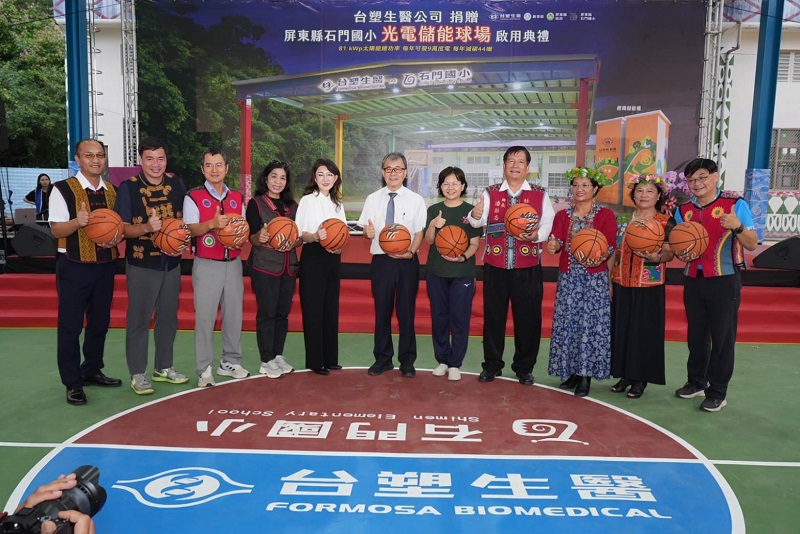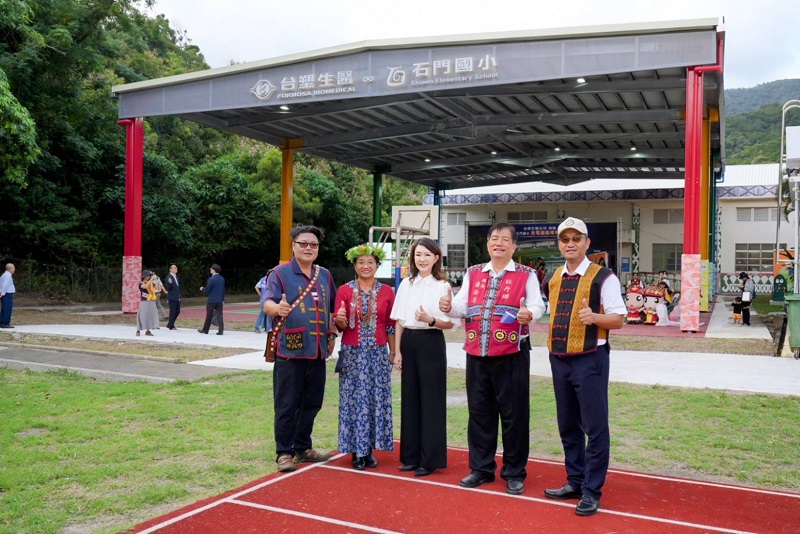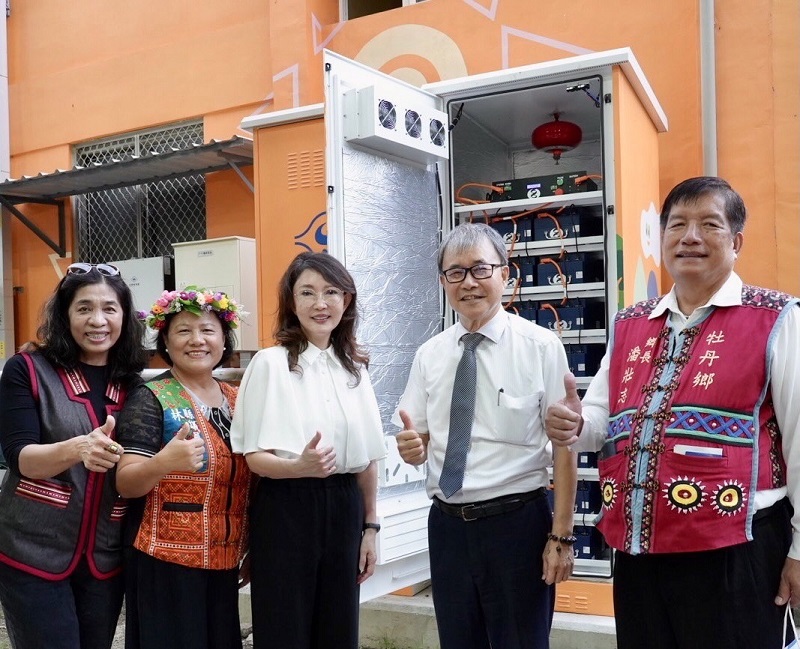Formosa Biomedical Announces Completion and Launch of Taiwan’s First Photovoltaic Energy Storage Sports Field Shimen Elementary School Sets a Benchmark for Campus Sustainability with All-Green, Uninterrupted Power
2024 / 10 / 22
Formosa Biomedical is dedicated to promoting preventive medicine and renewable energy applications. As such, the company has invested nearly NT$20 million to build Taiwan’s first photovoltaic energy storage sports field at Shimen Elementary School in Mudan Township, Pingtung County, which is now officially operational. In the future, the field will generate 90,000 kWh of green electricity annually, reducing carbon emissions by approximately 45 metric tons, equivalent to planting nearly 4,000 trees. The goal is to create a safe and healthy sports environment for the next generation, establish a model for all-green, uninterrupted power supply in elementary schools, and set a benchmark for sustainable campus development.
To expand renewable energy development and increase indoor sports facilities, Taiwan has been promoting the construction of photovoltaic sports fields in schools at various levels in recent years. However, Shimen Elementary School, an Indigenous southern Paiwan school located in a highly remote area, faces limited feeder capacity with no recent expansions. When natural disasters damage the feeder lines, repairs take considerable time, leaving the community without emergency power supply. Sandy Wang, chairperson of Formosa Biomedical, made a firm decision to donate a photovoltaic energy storage sports field to the school. On October 21, she attended the opening ceremony along with Education Minister Ying-Yao Cheng, representatives from the Council of Indigenous Peoples and Pingtung County Government, and Shimen Elementary School Principal Pao-Sheng Tsai, among other distinguished guests, to witness the completion and launch of the field.
Sandy Wang stated that this is Taiwan’s first photovoltaic sports field equipped with a lithium iron battery energy storage system. It provides a sheltered space for children to play, protected from wind, rain, and direct sunlight. The field can generate 90,000 kWh of green electricity annually, enabling the school to be self-sufficient in power consumption. Surplus electricity is not sold back to the grid; instead, it is stored in the energy storage system to provide precious power. In case of power outages, it can supply up to a week of nighttime lighting for the school’s auditorium and sports field, and can also meet the emergency electricity needs of the community for essential living and medical purposes.
Sandy Wang stated that 30 years ago, Yung-Ching Wang, the founder of Formosa Plastics Group, launched the Fishing Rod Project, which provides free education to Indigenous children. To date, it has invested nearly NT$1.7 billion and helped over 5,500 individuals. Some graduates from Chang Gung Institute of Nursing have even returned to work at the Mudan Township Health Center, demonstrating that the Fishing Rod Project not only improved children’s life paths but also nurtured skilled healthcare professionals for Indigenous communities, successfully fostering a positive societal cycle. Now, Wang continues the founder’s spirit by contributing to the next generation through the photovoltaic energy storage sports field.
Ying-Yao Cheng stated that the Ministry of Education is promoting the use of schools as hubs to enhance grid resilience and thanked Formosa Biomedical for leading the way in helping stabilize the community power grid. The Pingtung County Government expressed hopes for continued collaboration in the future, using solar power to light up rural areas and provide more children with a better and safer environment for sports education.
Shimen Elementary School noted that in the past, students’ physical education classes or outdoor activities were often affected by scorching sun or rain, and typhoons would frequently cause power outages in the community or school, disrupting daily life and communication. The school expressed gratitude to Formosa Biomedical for donating the photovoltaic energy storage sports field. Once operational, it will not only serve as a recreational space for students and community residents but also generate electricity for the school’s use.
Since its establishment in 2003, Formosa Biomedical has been dedicated to promoting preventive medicine and social welfare. The company expressed gratitude to the Council of Indigenous Peoples for donating approximately 120 square meters of Indigenous reserved land, enabling Formosa Biomedical to complete this charitable initiative. Appreciation was also extended to the Ministry of Education and Pingtung County Government for their assistance in creating the photovoltaic energy storage sports field at Shimen Elementary School, which features health benefits, a stable power supply, energy savings, and carbon reduction. In the future, Formosa Biomedical will continue to invest resources, take concrete actions to fulfill its responsibilities, and collaborate with more partners to realize a vision of a healthier and better society.








